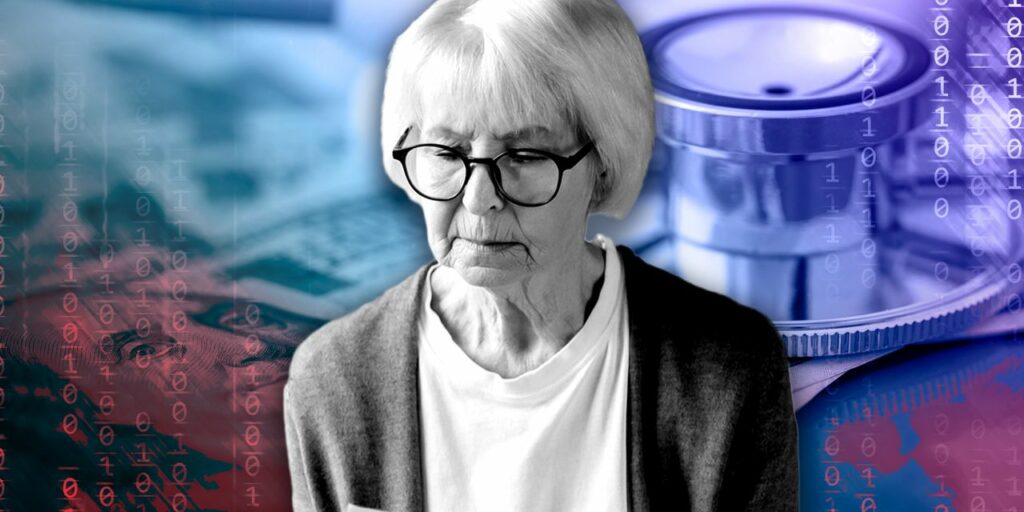Dear MarketWatch,
I appreciate you putting my sad predicament In your column. Somehow I have failed, not taking care of myself. I have spent my money on helping my family and was never able to save anything. The two episodes of cancers took me down quite a bit. I’m 74 years old and must continue to work to pay off my condo in the amount of $56,000 and my car of $8,000.
I want to retire so I can have a few years to enjoy life. Is there anyone who could help me? Because if not, I will work until I die. My life has been nothing but misery of working and worrying if I can pay my taxes and bills. I never thought I would end up at 74 and still need to work.
My right leg is giving me problems — it could be cancer again. I can hardly get up for work anymore with so much pain I am in. Both my shoulders have their rotator cuffs broken and I have to get shots in them. I also get a shot in my left knee. I have essential thrombosis and will take pills the rest of my life. I have too much iron in my blood so every two weeks I have to have blood letting until my ferritin level gets down to normal. My left arm has lymphoma and I need to wrap it every night.
So is there anyone out there that will help me please? I beg you.
See: We’re in our 60s, my husband plans to work until he ‘drops dead’ and our medical bills are overwhelming — how can we retire like this?
Dear reader,
I’m so sorry to hear the struggles you’re facing.
It’s hard to give specific advice given the circumstances, but there are a few resources available for you to pursue.
You asked if there’s anyone who can help you. My first suggestion would be to find a qualified financial planner who offers pro bono work. There are advisers out there who work with clients for free, or charge very little. You can find these advisers a few ways: the Financial Planning Association, the Certified Financial Planner Board and the National Association of Personal Financial Advisors, to name a few. You might also want to reach out to a cancer association, as many of them have professional networks they can tap into to help people in need.
The Financial Planning Association has a financial planning for cancer program, where planners help families make sense of the finances behind this terrible disease. The program was developed with the Foundation for Financial Planning and Family Reach, an organization dedicated to helping people overcome financial obstacles associated with cancer.
Want more actionable tips for your retirement savings journey? Read MarketWatch’s ‘Retirement Hacks’ column
Also look into possible government benefits on Benefits.gov, which has a tool that will sort through programs and benefits you are eligible for, such as healthcare and food. There might be other organizations available in your area to help with rental assistance and disability benefits. This website called Need Help Paying Bills has a list of suggestions, as well as information on free grants, clothes and job training.
Look into your health insurance to make sure you’re covered properly, and that you’re getting the most out of your coverage to begin with. This includes copays, premiums and the right prices for the right medications.
Take stock of all of your assets and debts. For example, you mentioned you still have to pay off your condo, but is that the home you plan to live in for the rest of your life? If it’s too big (say, one or two bedrooms too many), have you considered downsizing? If so, the sale could bring in extra cash for you to build up a nest egg, and you’ll also be spending less on taxes and utilities. The same goes for your car — you may be able to find a less expensive car, and if you don’t care if it’s a few years old, you could save money that way as well. Just make sure it’s in acceptable working condition so that you’re safe (and also not paying for constant repairs).
Also see: 6 places to get free, professional financial advice now
And talk to your family and friends. You mentioned you spent your life helping them — can they help you now? Maybe they can’t provide money, but are there other ways you could use their help, such as with getting things done around the house or finding assistance programs?
Beyond the financial and medical obstacles, which are obviously very real, try to find small, inexpensive ways to enjoy life now. Your circumstances are hard, and you may feel as though it’s all downhill from here, but can you find a nice spot to sit outside and enjoy the weather, the nature, the birds or animals roaming around? Is there a library or other center nearby where you could take free classes or find friends with similar interests? Can you build on the relationships you already have, and do things such as hosting a potluck with family or friends so that you can have quality time but on a budget. Happiness doesn’t have to come with a big price tag. One expert said relationships are the key to real happiness.
Readers: Do you have suggestions for this reader? Add them in the comments below.
Have a question about your own retirement savings? Email us at [email protected]


